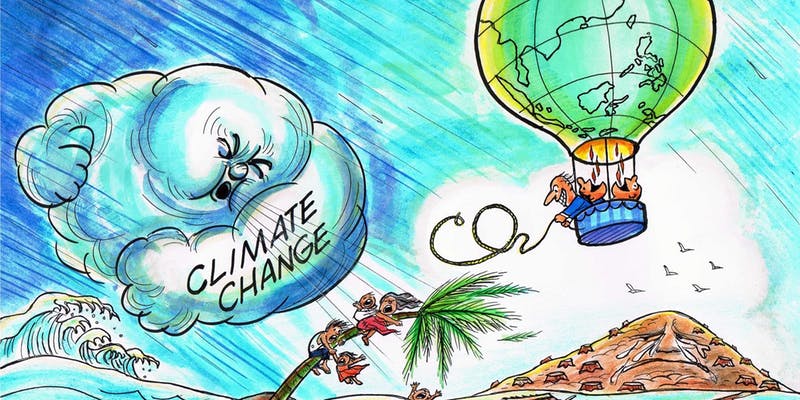Climate breakdown: The time to act is now…
The Intergovernmental Panel on Climate Change warn that global warming is likely to reach 1.5°C between 2030 and 2052 if we continue business as usual. Dr Amanda Slevin highlights the importance of recognising the psychological, cultural, socio-economic and physical barriers to climate action.

Images of intense storms, heavy flooding and devastating droughts increasingly feature in mainstream and social media. Extreme weather events are indicative of large-scale, long-term shifts in our planet’s average temperatures and weather patterns associated with climate change. We humans affect the earth’s temperature and climate by adding vast amounts of greenhouse gases (GHGs) to the atmosphere through burning fossil fuels (oil, gas and coal), cutting down rainforests and farming livestock. In 2019, levels of atmospheric carbon dioxide (CO2, the most common GHG arising from human activities) were the highest ever recorded.
Human activities are responsible for 1.0°C of global warming above pre-industrial levels and the Intergovernmental Panel on Climate Change warn that global warming is likely to reach 1.5°C between 2030 and 2052 if we continue business as usual. Global CO2 emissions must peak by 2020 and be reduced by 45% before 2030 in order to limit temperature increases to 1.5°C yet we are on track for a 3°C increase by 2100. Warmer weather might seem appealing but climate change involves more than hotter temperatures – as our atmosphere and oceans heat up, snow and ice levels are reduced and sea levels increase, producing extensive negative impacts for societies, economies and important ecosystems.
To continue reading, please click here.
Article originally appeared on Slugger O’Toole.




